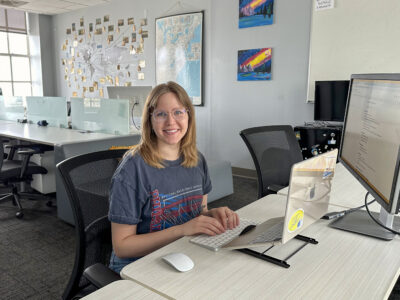
The financial impacts of COVID-19 and the economic downturn are still yet to be realized, whether it be a recession or a depression. The last significant ordeal to consider was the 2008 financial crisis but since then, the global consulting industry has grown steadily to $160 billion, according to Source Global Research. However, COVID-19 is forcing clients to halt engagements, while many others are being scaled back – resulting in substantially decreased revenue for consultancies of all types. And companies are using this time to consider where to invest their technology dollars. The pandemic is only confirming what we’ve recently seen in our sector. Buyers have:
- A renewed interest in investing in local consultants
- Less interest in off-shoring
- More interest in reinvesting in quality
- Less interest in big four consulting (Deloitte, PwC, EY, KPMG)
In an industry struggling to keep people working, one of the greatest obstacles has been soliciting new work. Networking events and conferences, face-to-face consultations, or just coffee meetings can be keystones to building a successful development funnel. Even just contacting someone at their business office was a hurdle. But people weren’t unreachable – the approach just needed to be reconsidered. Presently, we’re leaning heavily on what we can accomplish through email, LinkedIn networking, social media, via our website, and through virtual conferencing. The advantage, though, is that clients are more direct about their pain points and more serious about the task at hand — offering sincere responses and a genuine need for quality development solutions.
What’s been our biggest reflection as a company? The pandemic has forced organizations to rethink the utility of commercial real estate. We (and other companies) have debated the question of whether physical space is needed to operate successfully. In our experience, we’ve taken a hard look at which of our locations will be the most beneficial to the company now and in the future. Increasing our commercial footprint is less important — what’s more important is having a central location that gives our developers and workshop room to flourish.
We’re doing whatever it takes to keep the lines of communication open. And the same holds true for operations. With 100% remote operations, we’ve come to rely heavily on collaboration tools. Google Meet, Slack, Cacoo, Draw.io, and Jira/Azure DevOps are becoming engrained in both planning and execution. Each person is finding their own ways to adapt and remain successful. When a “return to the office” is a thing of the past, these tools will remain part of our process.
Business continuity planning is another crucial piece of that process. It’s important to maintain a proactive approach — establishing a system of prevention and recovery for potential threats. We all know that it’s difficult to anticipate what the future holds, and certainly when it comes to global pandemics. Disaster recovery and pandemic-related considerations have been added to our business continuity plans and master services agreement. Additionally, we adapted to accommodate travel-heavy engagements and recruitment outside of our traditional geographic footprint.
In the end, our priority is and will always be the health of our employees. There is certainly a level of risk by having employees return to the office, and that risk far outweighs the gain at this point. And for us, our return to the office will look different from our pre-pandemic setup. But we’re able to embrace a primarily remote model, just through the nature of work. The time after COVID-19 may yield a more hybrid approach, which will allow businesses to gradually reintroduce employees to the office while observing a rotational, hoteling, or staggered schedule. All of these tactics are an effort to reduce workspace crowding and person-to-person transmission. Ultimately, our company’s successful return to the office will depend upon its ability to reach and respond to data-informed milestones and the tech ecosystem — requiring both awareness and adaptability.
***

After more than a decade of helping organizations strengthen their SDLC through QA, Ben Wilson founded Rivers Agile in 2008. The mission was simple – to build an innovative, elite QA consultancy that helps organizations mature their QA approach to a proactive keystone in their application life cycle. He’s grown his company into a recognizable force in Pittsburgh – providing a full range of solutions from product design, to QA testing and training, to software development. Ben’s still as passionate as day one and feels lucky to work alongside a talented team of developers, testers, strategists, and innovators. To connect with Ben, email him at ben@riversagile.com.
Join the conversation!
Find news, events, jobs and people who share your interests on Technical.ly's open community Slack




